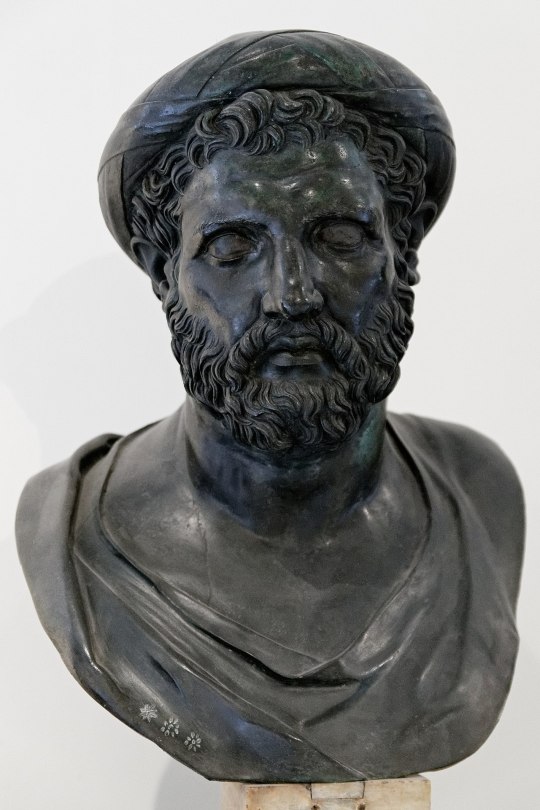#MathematicalPioneer
Text
"A fool is known by his speech, and a wise man by silence."

Pythagoras, a Greek mathematician and philosopher, lived around 570-495 BCE. While much of his life is shrouded in mystery and legend, here are five lesser-known or potentially rare facts about Pythagoras:
Secretive Cult-Like Community: Pythagoras founded a secretive and exclusive community in Croton, Italy, known as the Pythagorean Brotherhood. The members of this community were bound by strict rules, including a vow of silence and a communal way of life. The group was not only interested in mathematics but also philosophy, mysticism, and religious practices.
Numerical Mysticism: Pythagoras and his followers believed in the mystical significance of numbers. They thought that numbers held inherent qualities and mystical properties. For example, they associated odd numbers with masculinity and even numbers with femininity. The number 10 was particularly significant and seen as a perfect and divine number.
Pythagorean Theorem was known before Pythagoras: While Pythagoras is credited with the famous Pythagorean Theorem, which relates the lengths of the sides of a right-angled triangle, evidence suggests that the theorem was known to the Babylonians and Indians before Pythagoras. Pythagoras, however, is often credited with its formal proof and popularization in ancient Greece.
Vegetarianism and Taboos: Pythagoras and his followers were known for their strict dietary restrictions. They practiced vegetarianism, believing that it was essential for purifying the soul. They also had various food-related taboos, such as avoiding beans, possibly due to their belief in the impurity associated with certain legumes.
Pythagorean Cup: Pythagoras is associated with the invention of the Pythagorean cup, also known as a "greedy cup" or "tantalus cup." It's a clever drinking vessel with a hidden mechanism that causes the cup to drain its contents if filled beyond a certain level. This invention is often attributed to Pythagoras as a symbolic lesson in moderation and self-control.
#Pythagoras#Mathematics#Philosopher#PythagoreanTheorem#MathHistory#GreekPhilosopher#Numerology#Mysticism#Mathematician#PythagoreanBrotherhood#AncientGreece#NumberTheory#MathEducation#Geometry#PythagoreanCup#MathTrivia#MathematicalPioneer#HistoricalFigures#MathLover#WisdomofPythagoras#quoteoftheday#today on tumblr
18 notes
·
View notes